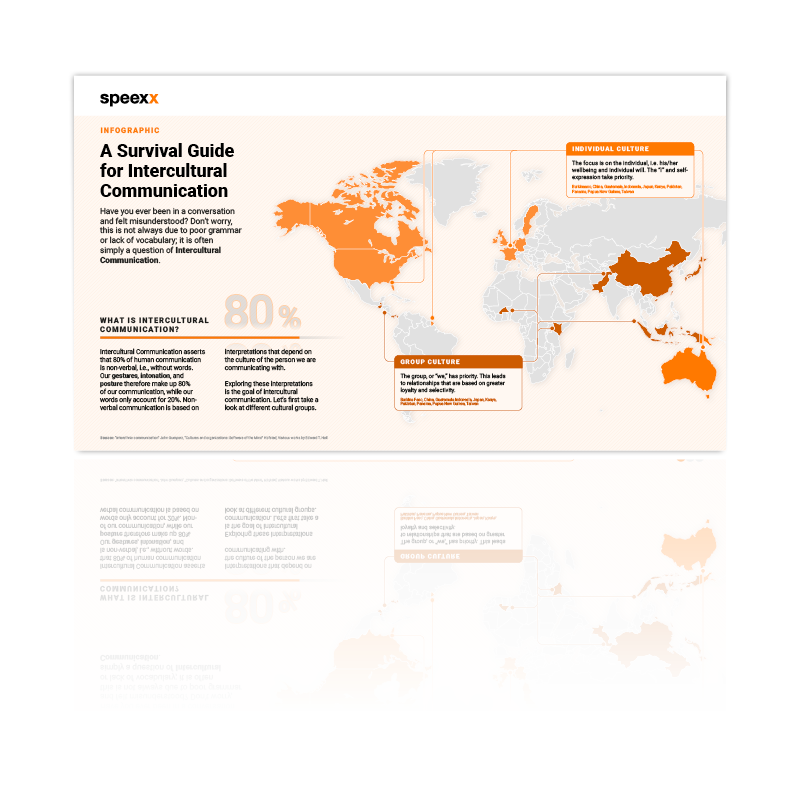For many of us, language learning comes to an end after leaving school. Yet language training benefits both our cognitive skills and our careers. So, should we invest more time and effort in learning a second or third language? How does language training help us personally? And how important is multilingualism at work? This article delves into these topics, offering clear insights and answers.
What Are the Benefits of Language Learning and Multilingualism?
It often takes years before we truly realize the value of investing in language skills—whether after school, during training, at university, or in our careers. Yet, when we examine the overwhelmingly positive effects of language learning, it becomes clear that delaying it only means missing out on valuable opportunities.
Language Training Is Brain Training
Being proficient in more than one language places significant demands on the brain and, according to neuroscientists, even promotes the growth and improved networking of gray matter. This is particularly relevant during the early stages of a career when mental performance is essential for professional growth and success.
However, the benefits extend into later life as well. As gray matter naturally declines with age, cognitive abilities remain in demand. Thinking and speaking in multiple languages place unique demands on the brain’s executive functions, enhancing concentration and attention control.
Multilingualism also strengthens the brain’s ability to filter relevant information while disregarding distractions—an essential skill in both professional and everyday situations.
Like a muscle that grows with exercise, the brain strengthens through language learning, increasing volume in key cognitive areas. This enhances overall mental performance, improving executive functions such as flexible task switching, inhibitory control, working memory, and sustained attention

Discover the benefits of multilingualism.
How Multilingualism Shapes Thinking and Decision-Making
Researchers at the University of Edinburgh have found that the languages we speak shape the way we think and process information. Studies on multilingualism and cognitive flexibility suggest that speaking more than one language enhances the brain’s ability to switch between tasks, process complex information, and adapt to new situations.
For years, scientists have been intrigued by how different languages influence perception. Some languages, for example, lack words for spatial directions like “left” and “right,” yet speakers of those languages navigate their environment just as effectively. This suggests that language affects the way we mentally organize and interpret the world.
Using cognitive and neuroimaging studies, researchers at the University of Edinburgh have shown that bilingual individuals often exhibit greater mental flexibility and problem-solving skills. They are better at filtering out distractions and focusing on key details—skills that are crucial in professional settings. Additionally, bilingualism may slow cognitive decline, keeping the brain sharper for longer.
These findings reinforce the idea that language learning does more than just expand communication abilities—it actively enhances brain function, influencing everything from decision-making to career performance.
Emotional Distance for Better Decisions
Foreign language skills also help when it comes to making more rational decisions at work, maintaining emotional distance, and taking advantage of attractive opportunities. Researchers at the University of Chicago have discovered this: According to the study The Foreign Language Effect: Thinking in a Foreign Tongue Reduces Decision Biases, a foreign language provides a distancing mechanism that moves people from the immediate intuitive system to a more considered mode of thinking.
Multilingualism as a Success Factor in the Global Economy
The fact that foreign languages are an important success factor for the economy is also stated by the German Economic Institute in its IW Future Panel. The success of traditional industrial sectors can only be achieved if they can hold their own in the face of structural change with megatrends such as globalization and knowledge intensification. The fundamental basis for globalization and knowledge intensification is communication, which must function smoothly beyond one’s own borders in order to be successful. Knowledge of foreign languages and cultures is essential for this.
Translation apps can be a first aid when writing emails in a business context, for example. However, they do not make language learning superfluous. Even apps that are described as working with artificial intelligence are only really suitable for translating factual texts. They do not understand emotions, for example, which can easily lead to unpleasant misunderstandings.
Why Are Language Skills and Multilingualism So Important for a Career?
If you want to make a career today, you no longer just need specialist knowledge. In recent years, soft skills such as general communication skills, teamworking, understanding of different cultures, and even empathy have become increasingly important. Furthermore, foundational skills like digital literacy are essential. In today’s globalized economy, a willingness to pursue international career opportunities is increasingly valued, and companies actively encourage participation in further training programs, including corporate language courses. Let’s explore the key benefits of foreign language skills for employees and businesses.
Effective Communication on All Channels
Communication is more than just words—it also relies on facial expressions, gestures, and tone. When any of these elements are missing, such as during audio phone calls or text messages, where visual cues are absent, strong language skills become even more critical to avoid misunderstandings.
Cultural differences also play a key role. A question that seems straightforward in one language may be interpreted differently in another. Understanding these nuances helps ensure clarity, professionalism, and effective cross-cultural communication.

Explore how cultural norms influence global interactions.
The Multilingual Advantage in Leadership
As a manager, speaking more than one language enhances your ability to communicate effectively, build rapport, and foster strong relationships with colleagues and clients from different cultural backgrounds. Multilingual leaders are better equipped to navigate cross-cultural nuances, ensuring that their messages are understood as intended and avoiding potential misunderstandings.
Beyond language itself, cultural awareness plays a crucial role. A manager who can engage in business discussions and small talk in two or more languages demonstrates adaptability and respect, strengthening professional relationships. This ability not only improves team dynamics but also increases trust, collaboration, and overall leadership effectiveness in a globalized workplace.
How Speaking Other Languages Helps Your Career Prospects
Beyond cognitive benefits, language skills provide job seekers with a competitive edge in today’s global job market. Employers across industries such as international business, diplomacy, customer service, and marketing actively seek multilingual candidates, recognizing the value they bring to cross-cultural communication and business growth.
Studies show that bilingual professionals not only have better career advancement opportunities but also earn significantly more than their monolingual counterparts. According to The Economist, workers who speak more than one language can earn up to 10-15% more over their careers. Meanwhile, a report from MIT found that speaking an additional language can boost lifetime earnings by as much as $128,000.
In fields like hospitality, healthcare, and tech, multilingual employees are better positioned to engage with diverse clients and partners, fostering stronger relationships and improving business outcomes. As industries continue to globalize, language proficiency is becoming less of a “nice to have” and more of an essential strategic advantage—one that can open doors to higher salaries, leadership opportunities, and long-term career success.
Multilingualism Improves Presentation Skills
A successful presentation is more than just well-designed slides—it depends on clear structure, engaging delivery, and audience connection. This can be challenging, especially when presenting across languages or cultures.
Multilingual speakers have a distinct advantage, as they can adapt tone, phrasing, and messaging to different audiences, reducing miscommunication and increasing engagement. In some cultures, data-driven arguments are key, while others value storytelling and interaction. Understanding these differences allows multilingual presenters to connect more effectively.
Strong language skills also make it easier to craft concise, impactful messages that resonate. By tailoring both content and delivery to linguistic and cultural nuances, multilingual speakers can make their presentations more dynamic, relevant, and persuasive.
Language Training Pays Off
Mastering a foreign language does more than improve communication—it sharpens decision-making, enhances cultural understanding, and strengthens social connections. Whether in the workplace or everyday life, multilingualism fosters adaptability, broadens career opportunities, and keeps the mind agile. In an increasingly interconnected world, investing in language skills isn’t just an advantage—it’s a necessity for personal and professional growth.



